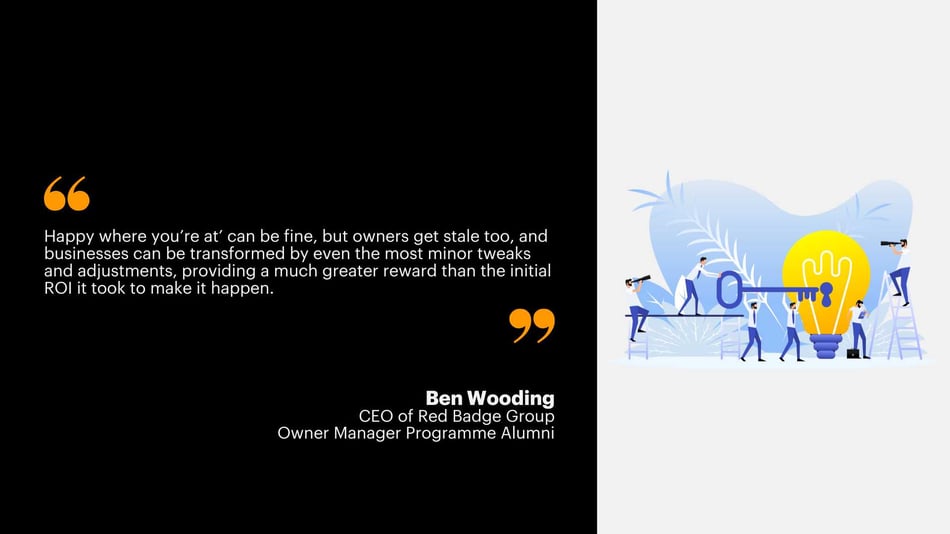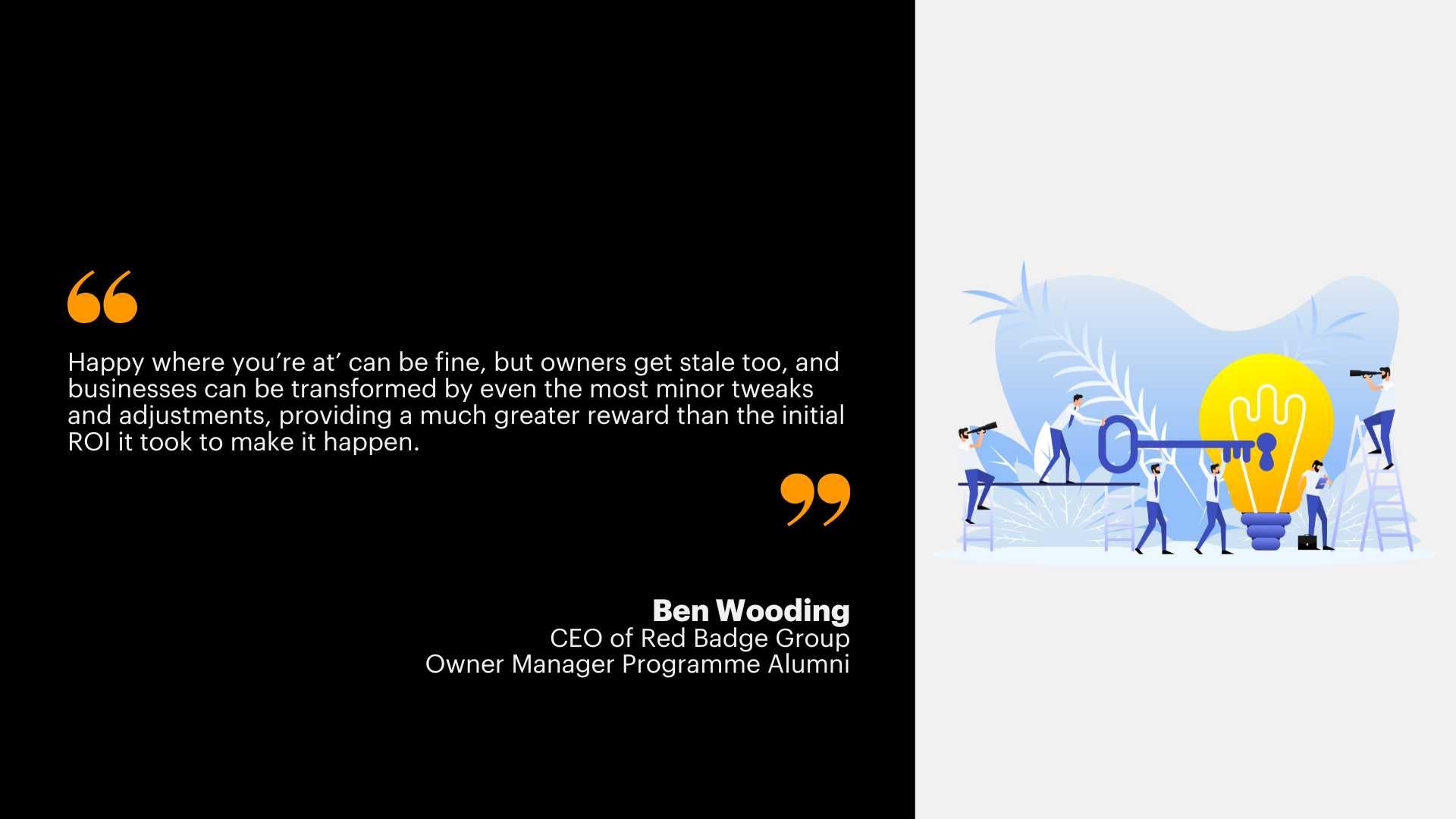
Having a great business is a wonderful thing. You’re making a healthy profit which meets all your financial, career and personal goals, you have a happy and motivated team, a great culture, and a loyal and engaged customer base. However, is it enough?

That particular question nags away at many of the business owners we help. Programmes such as The Owner Manager Programme (OMP) can help address that dilemma and provide some clarity (and even renewed motivation) around the future direction of the business and the future direction of you.
For some, just ticking along is ideal. However, that has implications around standing still, which can be a dangerous thing. As Harvard Business Review explains, we can all list a business that has experienced exceptional growth, stopped, and then for one hundred different reasons, has withered away. ‘Most business models eventually get stale and need to be either abandoned or refreshed. So periodically take a look at what you do, and how you do it — and ask yourself if it still makes sense.’
‘Happy where you’re at’ can be fine, but owners get stale too, and businesses can be transformed by even the most minor tweaks and adjustments, providing a much greater reward than the initial ROI it took to make it happen.
“A lot of the change that’s happened in our business in the last nine months came from OMP and the learnings from it,’ says Ben Wooding, CEO of Red Badge Group and an OMP alumni.
“My [CEO] role fell out of OMP… [now] we've got some pretty ambitious plans. We’ve had this steep growth curve, which we're now trying to get on top of internally, and really set ourselves up with strong system and process so that we can then look to grow again.”
Those small changes can create new opportunities and a new sense of direction in areas you never thought possible. Owners tell us that these are often more interesting to them and reinvigorate their passion for the business.
“When we sat down [after OMP], we went through opportunities that were available still in business. One thing I looked at; we have acres of room to grow. We have a dozen different angles that we can go for growth in the business,” says Nathan Roper, Horizon International owner and another OMP alumni.
“We are looking at new machinery purchases, we are looking at new resellers. So, in my next couple, three, four or five years, I would like to double the size of the business.”
Successful businesses can stagnate or shrink to a certain point due to various reasons. Firstly, growth requires additional resources, such as capital, personnel and infrastructure. A business may choose to maintain its current size and profitability rather than taking on the risks and costs associated with expansion.
Market saturation can limit growth opportunities. In highly competitive industries, reaching a saturation point where customer demand is met becomes challenging. While expanding into new markets may involve substantial investments and uncertainties, making some businesses reluctant to take that leap.
Moreover, maintaining a manageable scale allows businesses to focus on quality control, customer service, and innovation. By staying lean and agile, they can respond to market changes quickly and efficiently.
Additionally, some business owners prioritise work-life balance and personal satisfaction over rapid growth. They may opt to maintain a comfortable size that aligns with their personal goals and values.
For these reasons, the status quo can look very attractive, but then comes the golden question around the endgame because, at some point, as an owner, you’ll want to exit the business or put in place a winning succession plan. To do this, the owners who wish to develop themselves and ensure they’re doing the right thing will prosper.
“It’s good to have a great business, but when exit and succession comes into play, your business can never be too healthy,” says Kate de Lautour, Customer Growth Partner at The Icehouse for the Taranaki, Northland, West Auckland and Gisborne regions.
“And it’s a subject we hear more and more about from programme participants; ‘How can I make my business more attractive to investors?’, ‘How can I get it in the best shape to hand over to my children?’ are frequent concerns.
“Investors want to see a healthy business that is ‘match fit’ and has everything in place for a mutually beneficial exit or succession, but they also want to see an engaged and motivated owner who is putting 100% into the business.”
You have a great business now, but will it be a great business in five, ten or twenty years’ time, and do your family, colleagues and senior people feel the same? These are big questions and they’re worth asking now, so you can get in place a plan that wins.
For information on programmes, workshops and business coaching services from The Icehouse, click here.
For more business ownership and leadership advice, check out more of our resources.
Icehouse Alumni? For exclusive content on Icehouse Central, register now.


